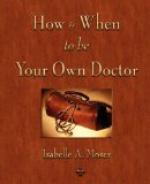Vitamin supplements can actually slow or even to a degree, reverse, the aging process. However, to accomplish that task, they have to be taken in amounts far greater than so-called minimum daily requirements, using vitamins as though they were drugs, a therapeutic approach to changing body chemistry profiles and making them resemble a younger body. For example, research gerontologists like Walford reason that if pantothenic acid (vitamin B5), in fairly substantial (but quite safe) doses can extend the life and improve the function of old rats, there is every indication that it will do a similar job on humans. Medical researchers and research gerontologists have noticed that many other vitamin and vitamin-like substances have similar effects on laboratory animals.
Some will object that what helps rats and mice is in no way proven to cause the same result on humans. I agree. Proven with full scientific rigor, no. In fact, at present, the contention is unprovable. Demonstrable as having a high likelihood’s of being so, yes! So likely so as to be almost incontrovertible, yes! But provable to the most open-minded, scientific sort—probably not for a long time. However, the Life Extension Foundation is working hard to find some quantifiable method of gauging the aging process in humans without waiting for the inarguable indicator, death. Once this is accomplished and solidly recognized, probably no rational person will be able to doubt that human life span can be increased.
Experiments work far better with short-lived laboratory animals for another reason; we can not control the food and supplement intakes of humans as we can with caged mice. In fact, there are special types of laboratory mice that have been bred to have uniformly short life spans, especially to accelerate this kind of research. With mice we can state accurately that compared to a control group, feeding such and such a dose of such and such a supplement extended the life-span or functional performance by such and such a percent.
A lot of these very same medical gerontologists nourish their own bodies as thoroughly as the laboratory animals they are studying, taking broad mixes of food supplements at doses proportional to those that extend the life spans of their research animals. This approach to using supplementation is at the other end of the scale compared to using supplements to prevent gross deficiencies. In the life extension approach, vitamins and vitamin-like substances are used as a therapy against the aging process itself.
Will it work? Well, some of these human guinea pigs have been on heavy vitamin supplementation for over thirty years (as of 1995) and none seem to be suffering any damage. Will they live longer? It is impossible to say with full scientific rigor? To know if life extension works, we would have to first determine “live longer than what?” After all, we don’t know how long any person might have lived without life extending vitamin supplements. Though it can’t be “proven,” it makes perfect sense to me to spend far less money on an intensive life extension vitamin program than I would certainly lose as a result of age-related sickness.




